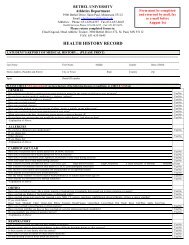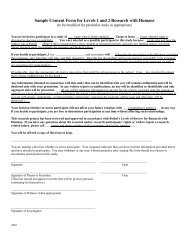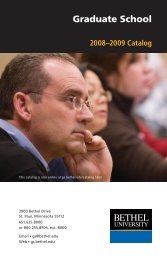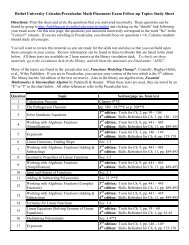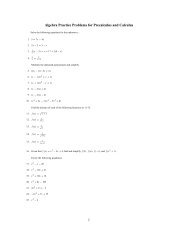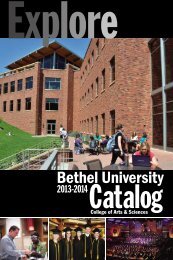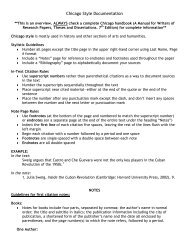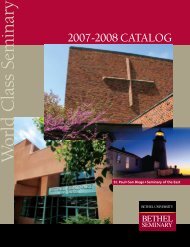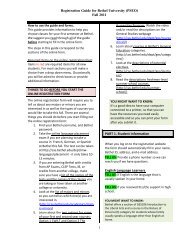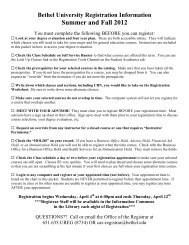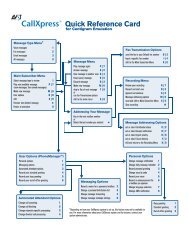here - College of Arts & Sciences - Bethel University
here - College of Arts & Sciences - Bethel University
here - College of Arts & Sciences - Bethel University
Create successful ePaper yourself
Turn your PDF publications into a flip-book with our unique Google optimized e-Paper software.
Roberts, Chris<br />
Purdue <strong>University</strong><br />
Background <strong>of</strong> the critic:<br />
I competed in both high school and collegiate level debate. As a college debater, I<br />
competed on both the CEDA and NFA LD circuit.<br />
Approach <strong>of</strong> the critic to decision-making (for example, ad<strong>here</strong>nce to the trichotomy,<br />
stock-issues, policymaker, tabula rasa, etc.):<br />
I believe t<strong>here</strong> are four: policy, value, quasi-policy, fact (this was influenced by my<br />
CEDA background). I will listen to cases run as value as opposed to policy (not every<br />
case needs a plan). However, the Government team gets to define how the judging<br />
criteria will be determined (but this is still debatable by the opposition).<br />
I tend to like on case clash and traditional stock issues debate.<br />
TOPICALITY<br />
Yes, it is a voter. Sometimes it is a reverse voter (dependent upon abuse). In short, I<br />
rarely vote on Topicality unless some form <strong>of</strong> unique abuse is proven in the round.<br />
Please be sure to have clear standards and a counter-definition. I rarely vote on T in<br />
metaphorical rounds <strong>of</strong> Parli debate. I will listen to counter-standards, so run them<br />
Relative importance <strong>of</strong> presentation/communication skills to the critic in decision-making<br />
:<br />
You should know that I have quite the odd hearing problem, or hearing loss, present in<br />
both ears. I don’t wear hearing aids because, per my ENT and Audiologist, the benefit<br />
would be minimal and I have learned to adjust to the loss over the years. Yes, I can hear<br />
you; yes, I can engage with you. Hearing loss is more complex than that. What it does<br />
mean is that I have difficulty hearing certain ranges <strong>of</strong> sound—the mid/lower decibel<br />
levels <strong>of</strong> “normal” conversation speech. The strange thing is I can hear people speaking<br />
s<strong>of</strong>tly, and hear them in the higher decibel levels <strong>of</strong> “normal” conversation speech—it’s<br />
just a particular range in the middle that I cannot hear. The hearing loss is usually<br />
referred to as a cookie-bite loss, since the audiology chart looks like someone took a bite<br />
out <strong>of</strong> a cookie. My cookie-bite loss becomes problematic when debaters engage in high<br />
rates <strong>of</strong> delivery w<strong>here</strong> the pitch <strong>of</strong> their voices tends to go up, and the loudness <strong>of</strong> their<br />
delivery tends to go down. Sometimes, these debaters will weave in and out <strong>of</strong> my<br />
hearing range. If you are speeding, you better be LOUD, and you better be CLEAR.<br />
136



